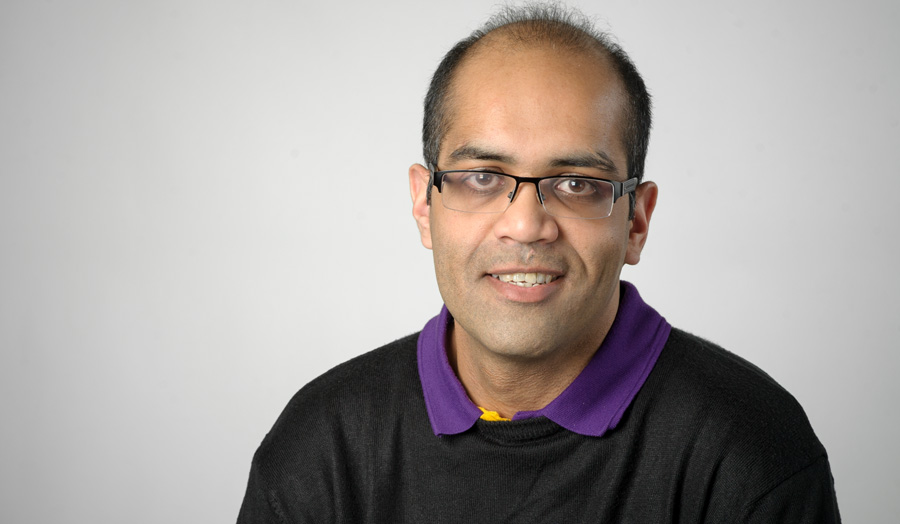Dr Bhaven Patel, a Medicinal Chemistry and Drug Discovery lecturer, speaks with Funmi Ajibodun as part of our In Conversation With series.
Funmi Ajibodun from our Outreach department caught up with Dr Bhaven Patel to find out more about our Medicinal Chemistry and Drug Discovery and Pharmaceutical Science courses and what makes them so unique!
What are the differences between Medicinal Chemistry and Drug Discovery and Pharmaceutical Science?
The medicinal chemistry and drug discovery course was developed in relation to us trying to get students to focus mainly on the drug discovery side, which you also do in pharmaceutical sciences. But then with pharmaceutical sciences you also look at a path for making the drug. You also look at putting those drugs into formulations, which then people can then take as medicine, whereas the medicinal chemistry side is really focused and sort of specialised in making the drugs. If they work, great, if they don't work, back to the drawing board trying to improve those. So it's more focused on the sort of chemistry side of it rather than the application as well.
What sort of opportunities are there available to students who study these courses?
So within the chemical and pharmaceutical sciences cluster, we do offer students who make inquiries about summer placements and unfortunately they are unpaid. But we do give students the opportunity to work 6 to 8 weeks with us with the research active staff in the university and they come into the labs five days a week if possible, or as much as they're allowed. They come and do research, active work with us in the lab. And we have managed to actually publish work from undergraduate research. So we've published three or four papers in the last couple of years from students who are still at or worked with the university at the time.
What makes students successful on the course? What are the key attributes that they might need to have?
You need to work hard, and I think it is key that you need to be interactive with staff. You need to have a relationship with the students and staff. So most of our students, I would say, are very well equipped. And by the time they get into their second and third year, they do know what's expected of them. They know they have to put in the work to actually be more successful. And if they don't then they will struggle.
We do offer extra support through our academic mentors. And then in the chemical and pharmaceutical sciences, we also have something called ChemDrop, where an academic member of staff is available every lunchtime for any of the students who need support. So the support's there, but we expect our students to put in the work and I think if they ask questions they will get more out of it.
What tips on personal statements might you offer to students applying to chemistry or medicinal chemistry or pharmaceutical sciences courses?
With your personal statement, you've got to be honest about your interests and what you've achieved so far. Don't just say you've got A-levels or Btecs. Say you've got experience, you've got practical experience. Talk about the experience you do have in your personal statement because that will help when trying to make decisions about who has better qualifications and who is more ready to come to university.
What do you expect from students at the start of the term?
Well, for all students, starting a new place is always going to be quite daunting. And it's even more daunting at London Met because they go into a super lab, which is one of the biggest teaching spaces in Europe. But what we try to do is make our students feel at home. We have quite a family-type atmosphere and we want our students to feel welcome and we try to do this from the start.
So we try to have open discussions, we do talk about our personal things. We all have a favourite element in the periodic table and by the end of the first semester, the students know what everyone's favourite element is. Mine is sulphur, for example.

